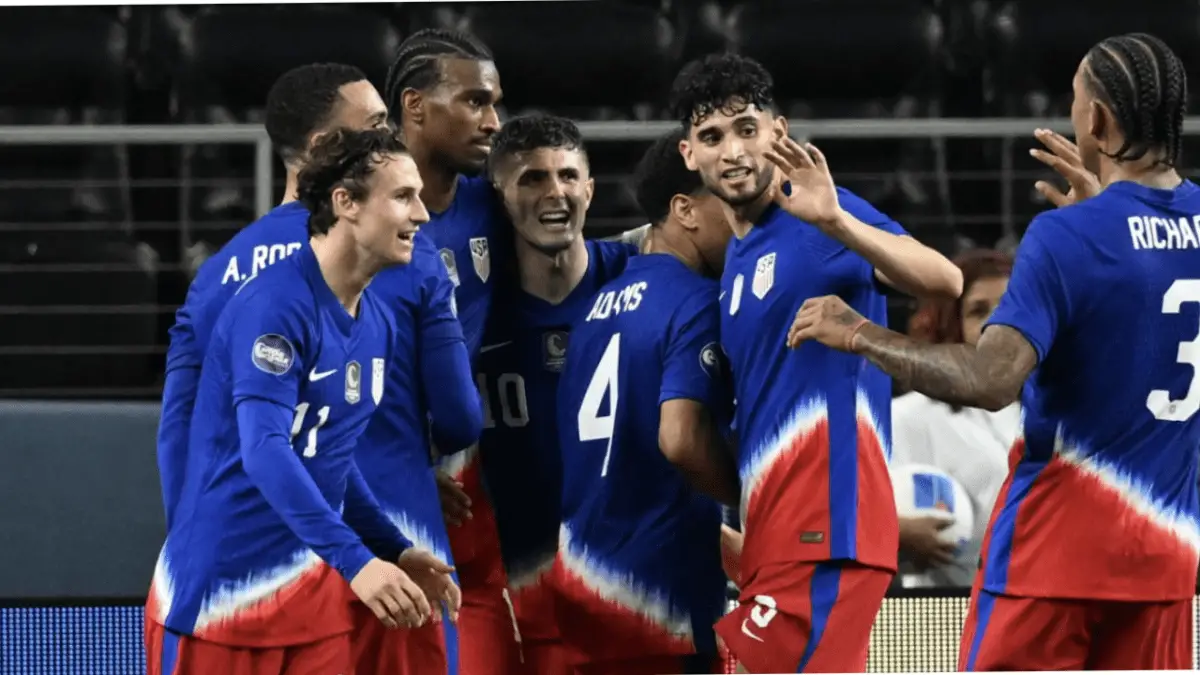Why Is the USMNT So Bad? What Did Messi Contribute to It and What Is the Future?
Soccer fans have long debated and been frustrated with the United States Men’s National Soccer Team (USMNT). Even with a wealth of athletic potential and resources, the USMNT has had difficulty winning on a regular basis in international competition. This begs a number of questions, like why the team underperformed, how Lionel Messi affected it, and what lies next for the team.
Why Is the USMNT So Bad?
- Developmental Issues:
- Youth Development: A major contributing factor to the USMNT’s difficulties is the disjointed youth development structure. In contrast to soccer superpowers like Germany and Spain, the United States does not have a unified national youth training program. In American youth soccer, the pay-to-play paradigm frequently leaves out gifted players from lower-class homes.
- Coaching: Another important concern is the caliber of coaching at the youth level. A large number of American coaches are devoid of the education and experience needed to help players reach their greatest potential.
- Lack of Soccer Culture:
- Popularity of Other Sports:Soccer faces competition from more deeply ingrained American sports like baseball, basketball, and American football. Because of this, instead of choosing soccer, many elite athletes prefer different sports.
- Media and Fan Support: Soccer does not enjoy the same level of media attention or fan support as it does in nations where it is the most popular sport. This affects how well-known and alluring the sport is to young athletes.
- Inconsistent Management:
- Leadership Changes: The team’s progress and style of play have suffered from frequent turnover in the coaching and management ranks. Over time, this inconsistency impedes progress.
- Strategic Direction: The team’s strategic direction—whether to prioritize long-term development or short-term results—has been the subject of continuous discussion. This has frequently resulted in a lack of focus and competing priorities.
What Did Messi Contribute to the USMNT?
In 2023, Lionel Messi, a legendary Argentine soccer player, signed with Inter Miami to play Major League Soccer (MLS). Messi’s participation in the Major League Soccer has had noteworthy, if indirect, benefits despite his lack of direct contribution to the USMNT:
- Raising the Profile of MLS:
- Increased Interest: Since Messi’s arrival, the MLS has been more well-known and visible throughout the world. This increased curiosity may serve as an inspiration for other young soccer players.
- Sponsorship and Investment: Because of Messi, the Major League Soccer (MLS) has drawn in more sponsors and investors, increasing the amount of money available for initiatives aimed at developing young players, coaching, and infrastructure.
- Improving Quality of Play:
- Competition: The MLS competition is at an even higher level when you play with or against one of the best players in history. American gamers may be able to develop their abilities and obtain priceless experience in this way.
- Professionalism and Standards: A more serious and committed attitude to the game can be fostered by Messi’s professionalism and high standards, which have the potential to impact American soccer culture.
What Is the Future of the USMNT?
- Youth Development Initiatives:
- Investment in Academies: Building and enhancing soccer academies is becoming more and more of a national priority. Young players are intended to receive top-notch training and development through initiatives such as the U.S. Soccer Development Academy.
- Inclusion and Accessibility: In an attempt to find hidden talent, efforts are being undertaken to increase soccer accessibility for players from a variety of backgrounds.
- Enhancing Coaching Quality:
- Coaching Education: There are currently initiatives in place to enhance coaching certification and education procedures. Player development can be greatly impacted by coaches with more training.
- International Influence: American soccer players can benefit from the fresh viewpoints and methods that experienced coaches from developed nations can offer.
- MLS Growth and Influence:
- League Expansion: Players can grow in a more professional setting thanks to the growth of soccer-specific stadiums and the expansion of the Major League Soccer.
- Talent Pipeline: Young players can obtain exposure and professional experience in the MLS, which can act as a crucial pipeline for the USMNT.
- Building a Soccer Culture:
- Grassroots Efforts: An early passion of soccer can be fostered in the United States by implementing grassroots programs and encouraging community involvement.
- Media Coverage: Soccer may gain popularity and draw in more players and spectators with increased media attention and promotion.
FOR MORE LATEST AND INTERESTING BLOGS PLEASE VISIT OUR PAGE = https://usabloghouse.com/sports/
Conclusion
There are indications of improvement and optimism for the future despite the tremendous obstacles the USMNT has overcome. The success of the league is possible because of the influence of worldwide soccer giants like Lionel Messi, as well as concentrated work on youth development, coaching advancements, and MLS expansion. It is possible for the USMNT to aim for regular success and grow into a powerful force in international soccer with sustained investment and smart strategy.
